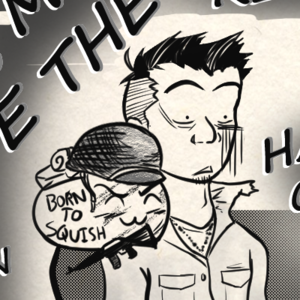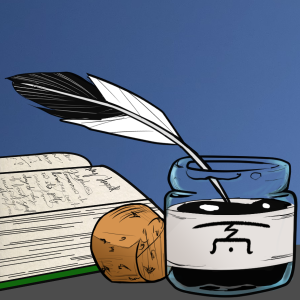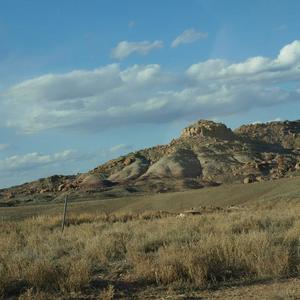Chi’Chiłtah, New Mexico. 1928.
The dryness of the air mingled with the smell of livestock in the gentle summer’s breeze. Leroy Begay sat in the saddle, feeling the rising and falling motion of the horse as it trotted across the barren sand. His father rode on a large chestnut mare to his right, softly whistling a tune which vaguely resembled the sound the wind made as it whistled through the various cracks of the summer home. Eight year old Leroy was going back to school. Leaving behind the wood-and-earth home he’d been born in was always difficult, but he’d done it twice before and now he knew the drill. When he and his father reached the trading post, Leroy would go inside and change into his school clothes. Leroy would then give his father his hat and boots and the two would say a quick prayer before he boarded the truck that would take him back the boarding school at Fort Defiance. Summer was going long this year, and it comforted Leroy a bit to know that his father and brothers would not freeze while herding the sheep. The trading post came into view, partially hidden by a few juniper trees and a large clump of sagebrush. Leroy’s father pulled the horses up alongside one of the larger trees, in a small patch of shade, before he dismounted and helped Leroy off of his horse. The two went inside.
The inside of the trading post smelled of the local industries, the clay which sealed the walls blending with the sharpness of freshly tanned leathers, the mild musk of woven blankets, and the distinctive aromas of sage and cedar. No matter how hard Old Hop Johnson tried, he couldn’t seem to keep the never ending supply of dust and sand from invading his shop. Though uninvited, the visiting sands gave back to their host by catching the light from the one electric bulb at the center of the room and the few ancient oil-burning lamps at the edges, casting an angelic halo around the room.
Father approached the proprietor and spoke to the man in broken English, indicating the back room with a twitch of his chin. Old Hop smiled and agreed to let Leroy change clothes in the back. Father motioned to Leroy, who went into the back to change. Father sat at one of the two tables next to the window. Through the dusty glass, he could see that no one else was coming. That made sense. Few of the other families for about twenty miles had school aged children, and the ones that did usually met the truck at the watering hole about ten miles to the east. Father sighed, and then pulled out his wallet. Inside he counted out forty-seven cents in assorted coins; enough to buy a couple of Coca-Colas and a pound of flour. Turning back to the counter, father requested the items in Navajo. Old Hop nodded, responded in broken Navajo, then went back to the shelf behind the counter to get the sodas. The door to the back room creaked open to let little Leroy come out. Leroy shut the door and gave his father his finer things. There wasn’t much, just Leroy’s hat, boots and old turquoise Concho belt. His father took the items and handed his son one of the sodas as the boy wiggled in the fading blue jeans and plain white button down shirt. The outfit hugged a tad tighter on Leroy’s slight frame than they had a year before. Leroy looked at his father and asked “Ma’ii’yah ba’hane’?” Father smiled. Stories about Ma’ii’, the coyote were usually only told when it was cold enough for there to be frost on the ground, but since Leroy would be at school most of the winter, Father let the taboo slip a bit. “Oa’” he said, nodding. “Taa’alt’lha’i.” He held up his index finger.
One for the road.
Father and son opened their sodas and Father began to speak, telling how the trickster coyote, Ma’ii, once lured his hardworking cousin horned toad into getting in his mouth so the coyote could eat him. Leroy sipped in between the fluid words of father’s story, punctuating the rhythm of the slow woven guttural sounds of their native language. As the story continued, Father told how after Ma’ii had swallowed Horned Toad whole he took his cousin’s cornfields and laid waste to them by eating all of the corn without tending to the rest. Leroy knew the tale by heart and blinked, letting his mind drift to the thought of how much he would miss this. When Leroy opened his eyes he saw Father, usually so reserved and still, gesturing with his hands and miming Ma’ii’s reaction to being haunted by the voice of Horned Toad.
Old Hop stopped sweeping the floor to listen to the story, leaning up against the counter to pick out as much of the tale could translate and, though he knew it was considered rude, broke custom by making eye contact. It was hard not to; Father’s eyes always lit up and twinkled with delight as he revealed to the audience that Horned Toad was alive and well accommodated in the Coyote’s belly, feasting on the corn so greedily and hastily consumed by his host. Leroy laughed at his Father’s exaggerated facial expressions, Ma’ii’s pain coming alive as Father’s words wove a picture of the beast stretched out over a fire, vainly trying to cook his unwanted guest through his own body. Old Hop jumped as Father continued, yelps and howls filling the small shop as the Horned Toad began to explore his new surroundings, his sharp body reminding Ma’ii of nature’s intolerance for evil.
The story stretched a moment into eternity, but as the coyote reaped his just punishment and Horned Toad reclaimed his freedom, the grinding noise of an engine drew near to signal the arrival of the school truck and the departure of Leroy’s remaining time. His story finished, Father’s eyes hardened as he steeled himself before he took the empty soda bottles and flour out to the horses and put them in the saddlebag beside his son’s good clothes. Leroy fought to carry the iron ball of dread in his stomach and watched Father retrieve a paper sack, which he tucked under his arm as they approached the truck.












Comments (1)
See all